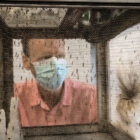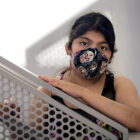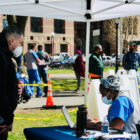Fines & Sanctions
Ranking Of Connecticut Medical Board’s ‘Serious Disciplinary Actions’ Echoes Members’ Concerns
|
The state Medical Examining Board ranked 37th in the nation in the annual rate of serious disciplinary actions the board took against physicians accused of wrongdoing from 2017 to 2019, according to a Public Citizen report issued earlier this year. Connecticut’s board averaged about 13 serious disciplinary actions a year in 2017, 2018 and 2019, according to Public Citizen. The rankings are based on the number of serious disciplinary actions taken by states per 1,000 physicians. Connecticut’s rate was .65 per 1,000 physicians compared to Kentucky, which had the highest rate of serious disciplinary actions at 2.29 per 1,000 physicians, the report said. Public Citizen defines a “serious disciplinary action” as one that has a clear impact on a physician’s ability to practice.








